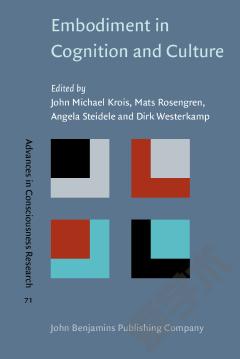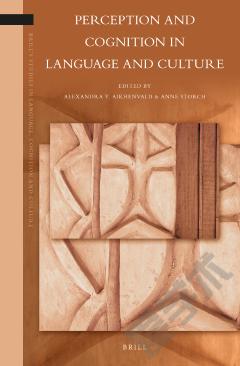Embodiment in Cognition and Culture.
This volume shows that the notions of embodied or situated cognition, which have transformed the scientific study of intelligence have the potential to reorient cultural studies as well. The essays adapt and amplify embodied cognition in such different fields as art history, literature, history of science, religious studies, philosophy, biology, and cognitive science. The topics include the biological genesis of teleology, the dependence of meaning in signs upon biological embodiment, the notion of image schema and the concept of force in cognitive semantics, pictorial self-portraiture as a means to study self-perception, the difference between reading aloud and silent reading as a way to make sense of literary texts, intermodal (kinesthetic) understanding of art, psychosomatic medicine, laughter as a medical and ethical phenomenon, the valuation of laughter and the body in religion, and how embodied cognition revives and extends earlier attempts to develop a philosophical anthropology. (Series A)
{{comment.content}}








 京公网安备 11010802027623号
京公网安备 11010802027623号